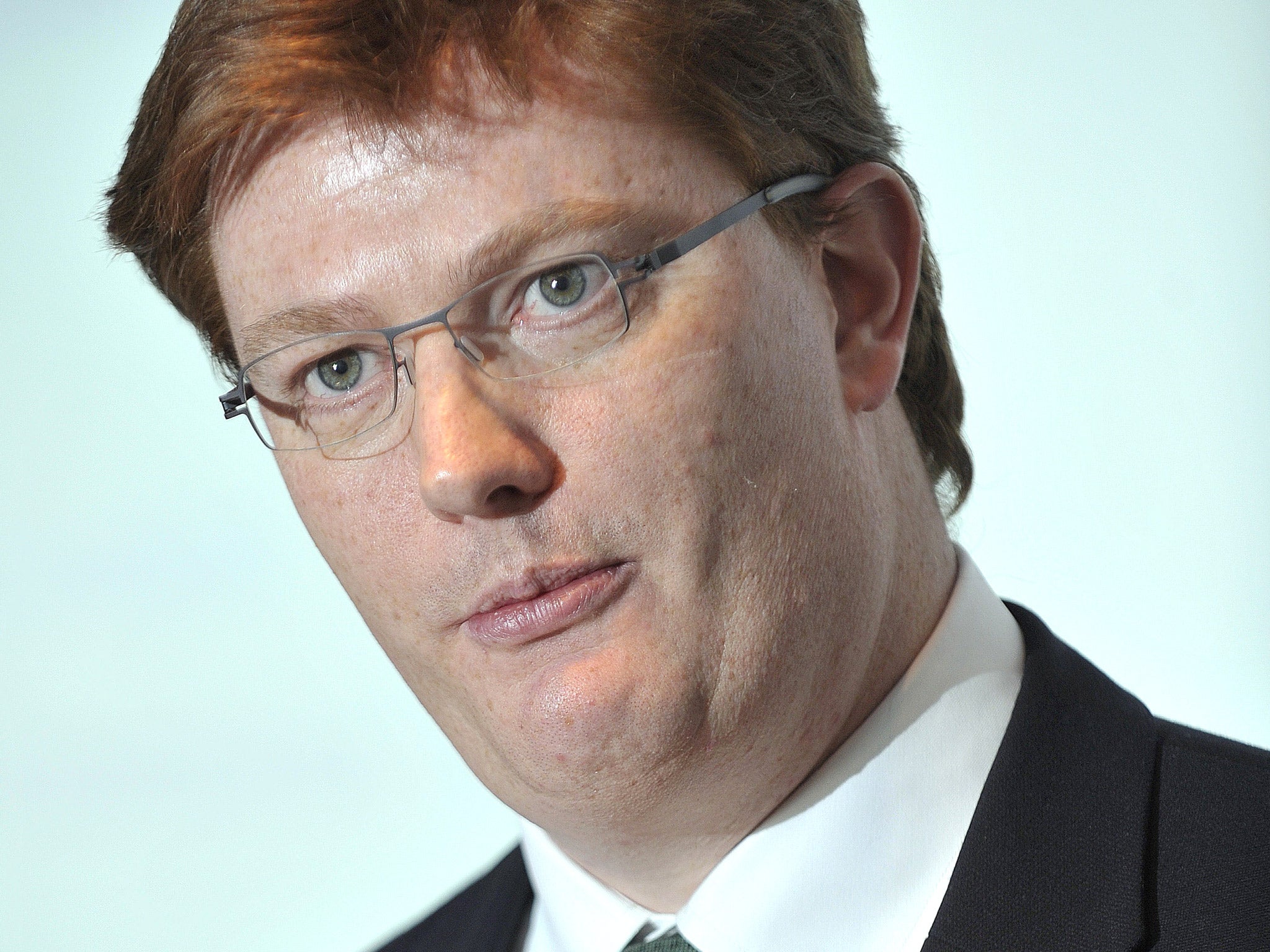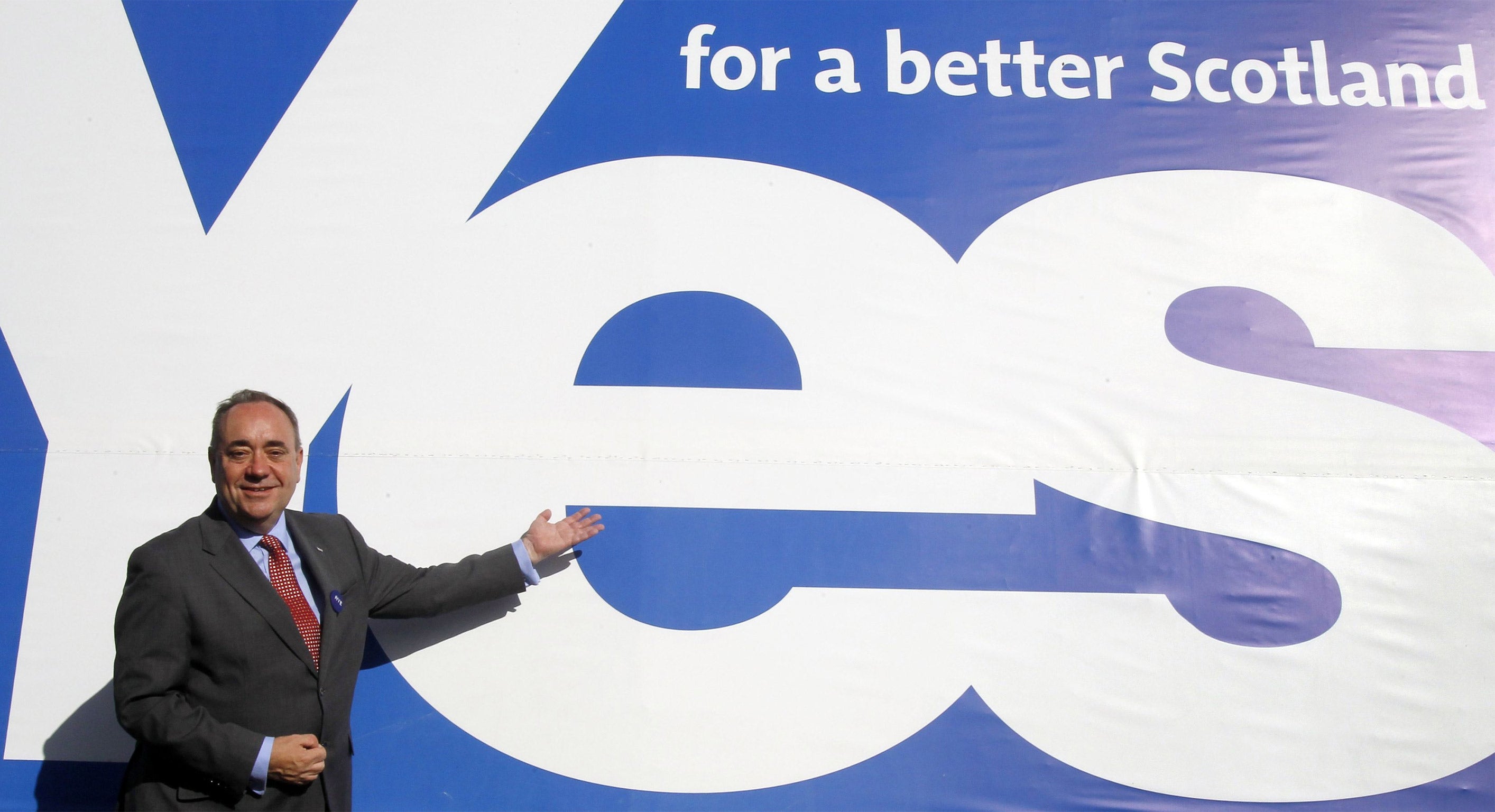Scottish independence: Yes vote would trigger an 'economic earthquake', claims Danny Alexander
David Cameron labels Alex Salmond's debt default threat 'chilling'

Your support helps us to tell the story
From reproductive rights to climate change to Big Tech, The Independent is on the ground when the story is developing. Whether it's investigating the financials of Elon Musk's pro-Trump PAC or producing our latest documentary, 'The A Word', which shines a light on the American women fighting for reproductive rights, we know how important it is to parse out the facts from the messaging.
At such a critical moment in US history, we need reporters on the ground. Your donation allows us to keep sending journalists to speak to both sides of the story.
The Independent is trusted by Americans across the entire political spectrum. And unlike many other quality news outlets, we choose not to lock Americans out of our reporting and analysis with paywalls. We believe quality journalism should be available to everyone, paid for by those who can afford it.
Your support makes all the difference.A Scottish vote for independence would trigger an economic "earthquake" with consequences for the whole of the UK, Danny Alexander has warned.
In an interview with The Independent, the Chief Secretary to the Treasury described the recent fall in the pound in the wake of a poll which showed large gains for the Yes campaign as “tremors” which pointed to a larger catastrophe.
On Tuesday sterling fell by around 0.6 per cent against the dollar, with analysts predicting a much steeper drop in the event of a Yes vote. The volatility was directly linked to the publication of a YouGov opinion poll which gave the campaign against independence a lead of just six points.
Mr Alexander said: “I think this is a taster of the economic damage that will be done, particularly to Scotland, if we voted for independence. These are the tremors, but we can avoid the earthquake by voting No.
“There’s obviously a huge amount of interest in the subject in the markets, naturally enough. If anything it just helps to concentrate people’s minds on what the reality of the economics are. There’s lots of words, lots of things that get said, but there is an underlying reality there which is what businesses have been warning about for months.”
Speaking as he handed out leaflets at a Better Together stall in the Edinburgh suburb of Corstorphine, Mr Alexander said the UK Government was “not spending a lot of time at all” on making contingency plans for a Yes vote on 18 September, arguing that the “simplest and best way” of avoiding any economic uncertainty for Britain was by winning the referendum. “If you’re worried about the economic costs – for Scotland mostly but also the rest of the UK – then the only way to avoid that is to vote No,” he said.
The Wall Street bank Goldman Sachs also warned that the UK could fall into a eurozone-style crisis if Scotland votes Yes, pointing out that it could spark major uncertainty over the creation of a currency union.
“The most important specific risk, in our view, is that the uncertainty over whether an independent Scotland would be able to retain sterling as its currency could result in an EMU-style currency crisis occurring within the UK,” wrote Kevin Daly, one of the bank’s senior economists.
“Even if the sterling monetary union does not break up in the event of a Yes vote, the threat of a break-up would provide investors with a strong incentive to sell Scottish-based assets, and households with a strong incentive to withdraw deposits from Scottish-based banks,” he added.
A spokesperson for the Yes campaign said: “The pound dropping a little against the dollar is no big thing and doesn’t indicate that the markets are spooked at all. It’s still at the mid-point between the 52-week low and 52-week high and the FTSE went up on the day that the markets were supposedly spooked.
“If there was unease anywhere it will have been caused by Westminster’s unreasonable and unprofessional position on currency union which is nothing more than a political tactic aimed at spooking the people of Scotland. If it has caused market uncertainty it’s the result of a backfire and has spooked the markets while Scotland remains unflustered."

Alex Salmond, Scotland’s First Minister, has insisted that the country would continue to use the pound after a Yes vote, warning that it could default on its share of the national debt if the UK Government did not agree to a currency union. He has also said that “sterlingisation” – in which Scotland would continue to use the pound without the backing of the Bank of England – is a viable option.
During Prime Minister’s Questions today, David Cameron described Mr Salmond’s threat to default on Scotland's share of the UK’s debt as “one of the most chilling” of the referendum debate so far. “We all know what happens if you don’t pay your debt – no-one will lend you any money unless you pay a punitive interest rate,” he said.
“We all know what that means for home owners: much, much higher mortgage rates. For businesses: crippling interest rates. Those are the consequences of what the separatists are proposing.”
Miliband promises to abolish bedroom tax
Ed Miliband will promise the people of Scotland that he will abolish the bedroom tax and devolve more powers to Holyrood if he is elected Prime Minister next year.
In a stump speech in South Lanarkshire, the Labour leader will urge Scots to vote No in the referendum, telling them that “change is on its way” from Westminster and that “electing a Labour government is the way to change Scotland”.
Join our commenting forum
Join thought-provoking conversations, follow other Independent readers and see their replies
Comments